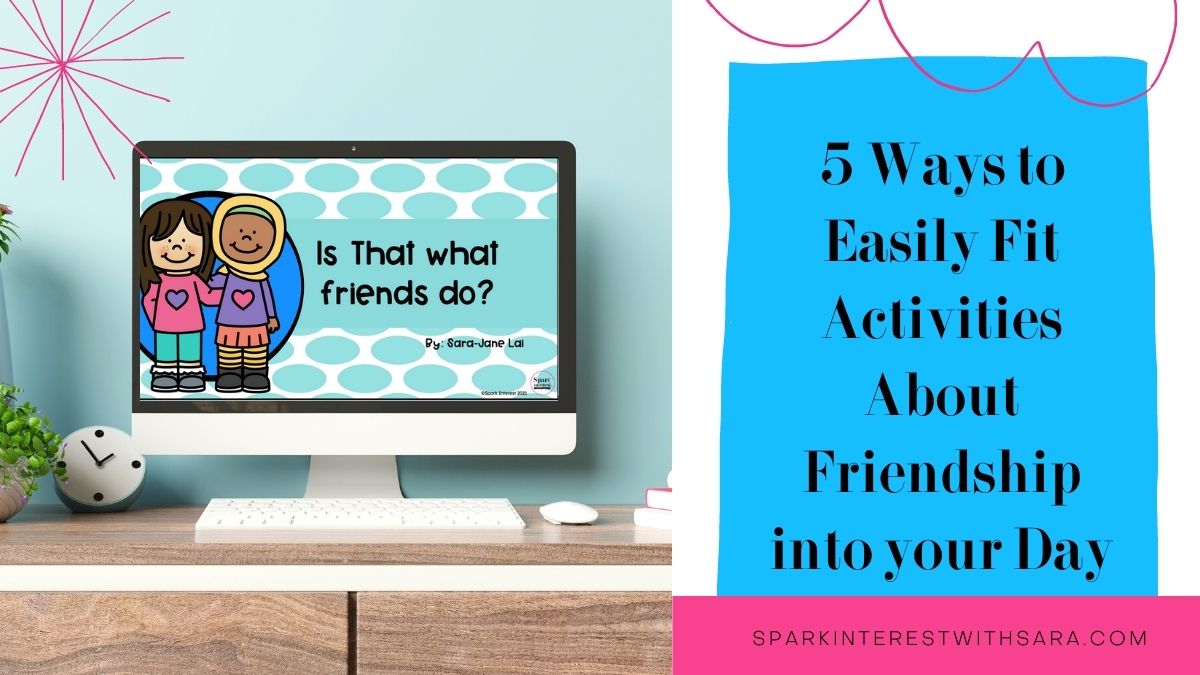
Are you often stuck thinking about how you are going to fit preschool activities about friendship into your busy day?
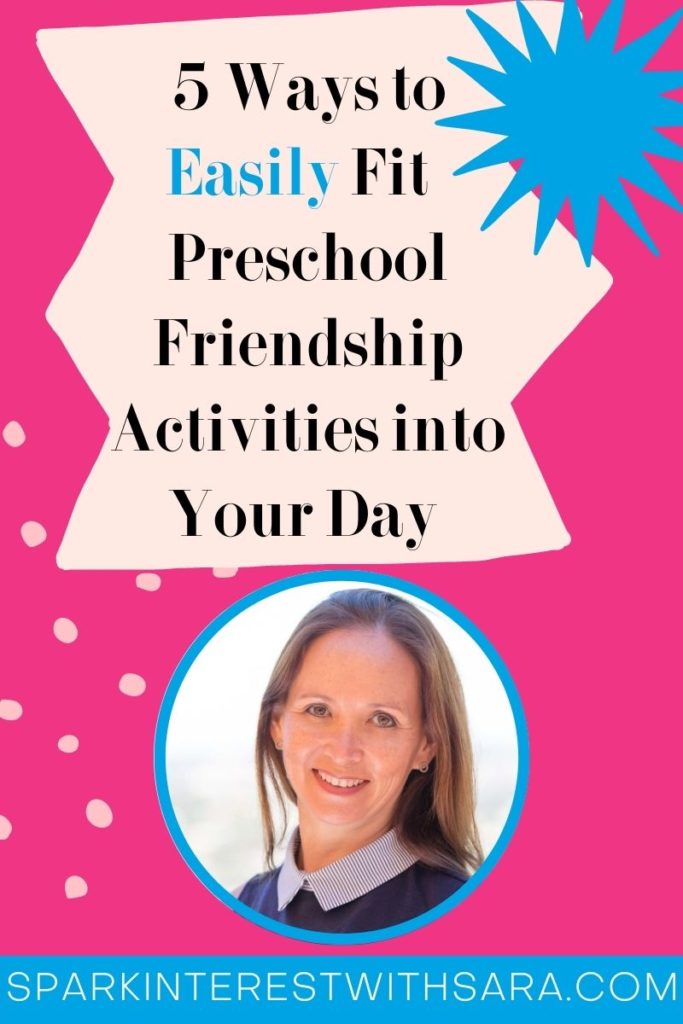
This blog post is going to cover what we need to expect from our preschoolers when it comes to friendships. Why are friendships important in preschool? I want to give you the tools to easily incorporate preschool activities about friendship into your day! Small but impactful things you can easily put in place today!
Before I jump into the nitty-gritty about what friendships for preschoolers mean, I want to share my Free Kindness Scenario Cards I have been using at morning group time.
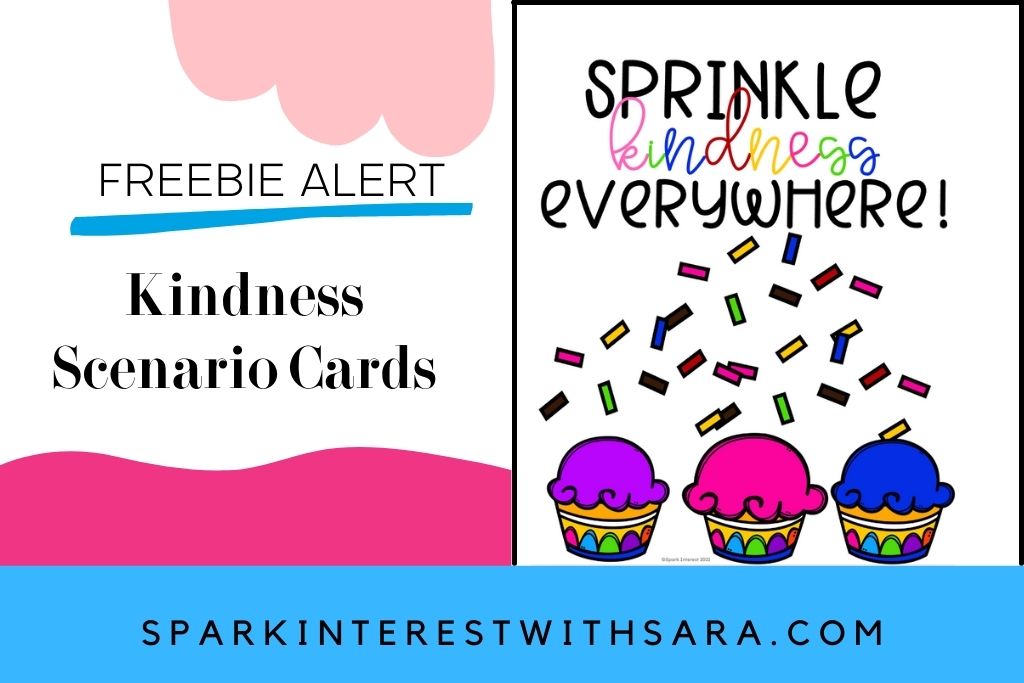
These Kindness Scenario Cards will get your children thinking about how they can sprinkle kindness into every situation.
So What is Friendship for Preschoolers?
Between Age 3-4
This is a magical time for our young learners. It is a time where children are moving from parallel play to more interactive play.
Most children at this age are spending time with other children in playgroups, preschools, sporting activities, or with extended family members.
They are interested in other children. We see them reaching out but are only just beginning to develop the skills necessary for navigating friendships. They need help in articulating their needs, managing feelings, including others, sharing, taking turns, listening to others and so much more!
We are witness to so much growth, development, and honestly, a whole lot of turmoil!
Between Age 4-5
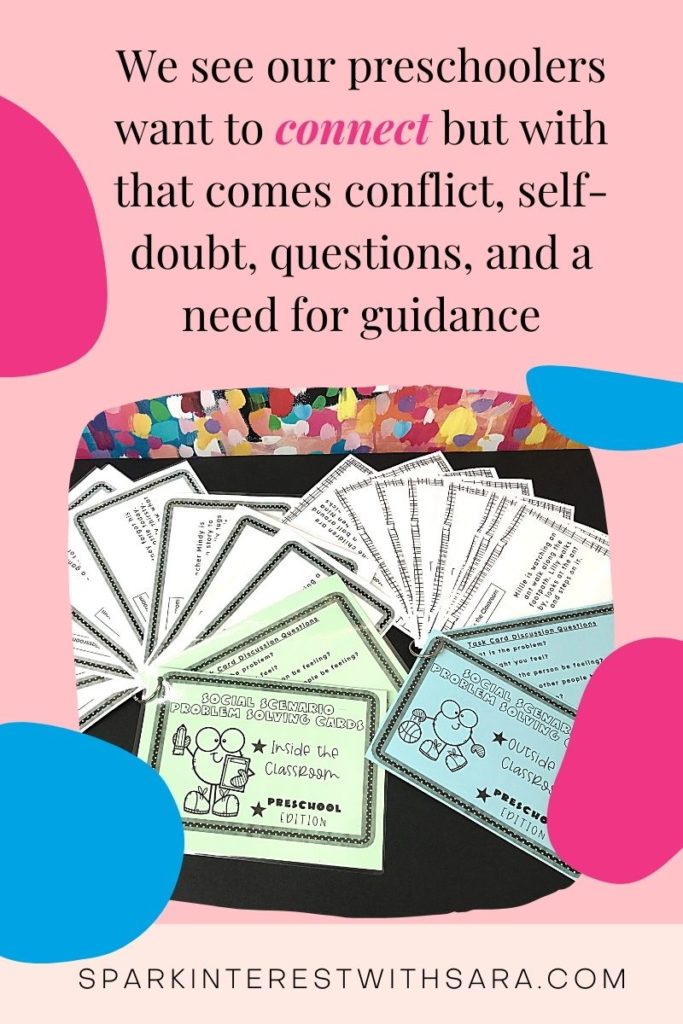
Then we get to age 4 -5 (my favorite age), most children will have friends they seek out and get excited about seeing. Others may prefer to observe and need time to watch before joining in. We see our preschoolers want to connect but with that comes conflict, self-doubt, questions, and a need for guidance.
“Children need to learn friendship skills. As children play with others, they build skills that help them with friendships now and in the future.”
So figuring out ways to support and guide them as they explore friendships is so important.
References:
2. First Discoverers
Benefits of Friendships in Preschool:
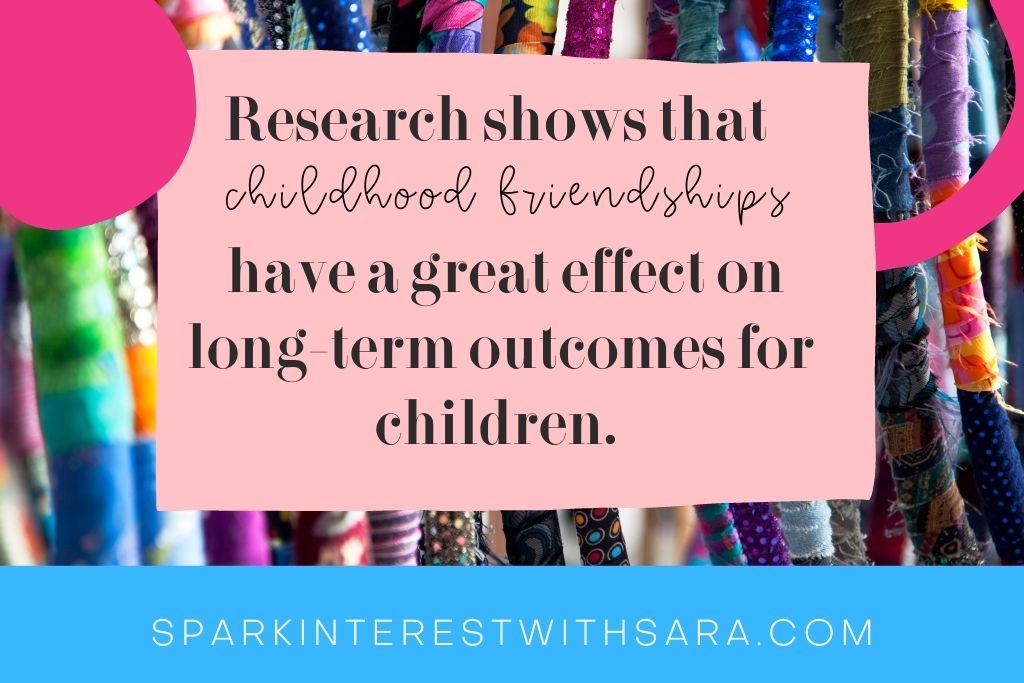
Research shows that childhood friendships have a great effect on long-term outcomes for children. Especially in the area of social-emotional development and academic performance.
Imagine what we can achieve if we make activities on friendship part of our daily practice and classroom culture.
Reference: The Psychologist
Building Friendships in Preschool Is a Challenge
As teachers, we know that friendships help children learn more about themselves. Friendships boost happiness, reduce stress, encourage learning and help develop confidence.
So the question is:
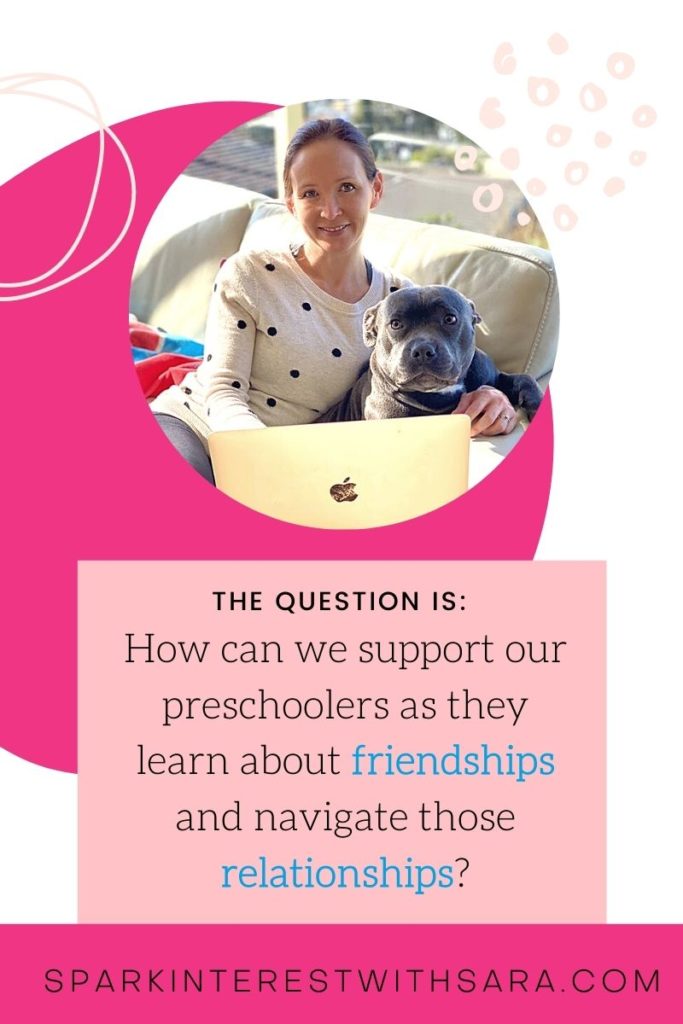
How can we support our preschoolers as they learn about friendships and navigate those relationships?
We can’t just leave them to it and let nature take its course!
So, how can we make it a part of our classroom community’s culture?
These tips will help you incorporate preschool activities about friendship into your day:
1.Create making friends crafts for preschoolers
We love our craft in my preschool room! Pair or group artworks have been a hit! They encourage our children to work with friends or to spend time with children they might not know. This is a great time to ease group interactions and work on friendship skills.
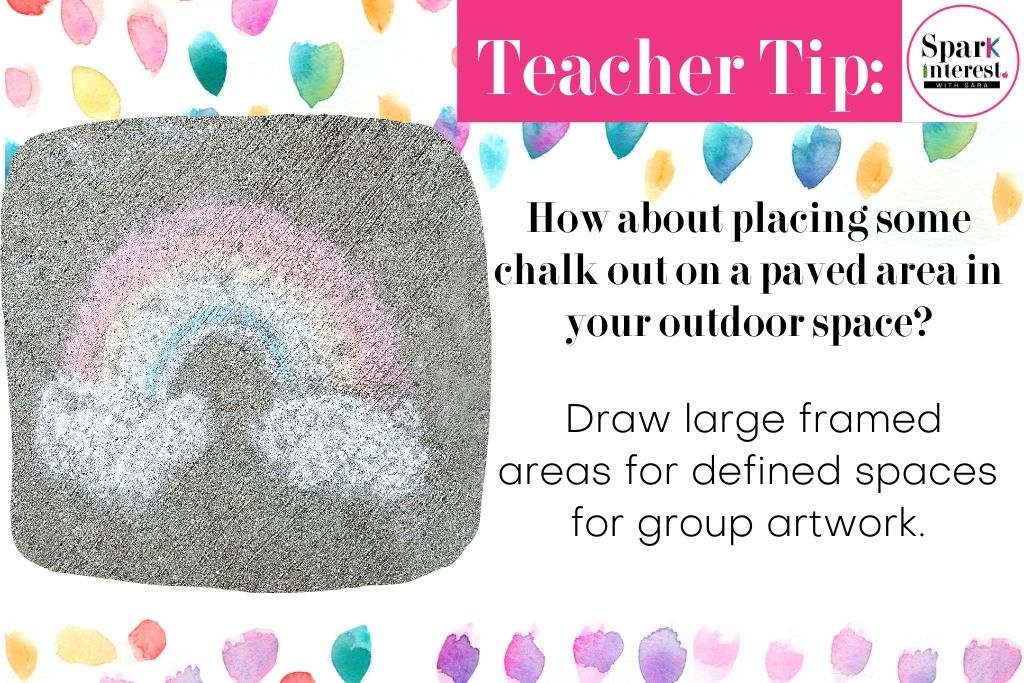
How about placing some chalk out on a paved area in your outdoor space? Draw large framed areas for defined spaces for group artwork.
How about large sheets of paper on the easel for paired drawings or paintings?
Ever considered a large group collaborative art project?
All these craft opportunities will get the children involved and working on making friends at the same time.
2. Play friendship games in preschool
TYPICAL PLAYGROUND GAMES:
Playing games provides a natural way to bring activities about friendships into your day. Typical games such as hide and seek or tag need the children to interact with other children. They need to work together, to compromise, follow rules, listen to each other, and to communicate.
Your role is to support interactions and provide guidance when needed to negotiate the complexities of playing games together.
TEAM BUILDING GAMES:
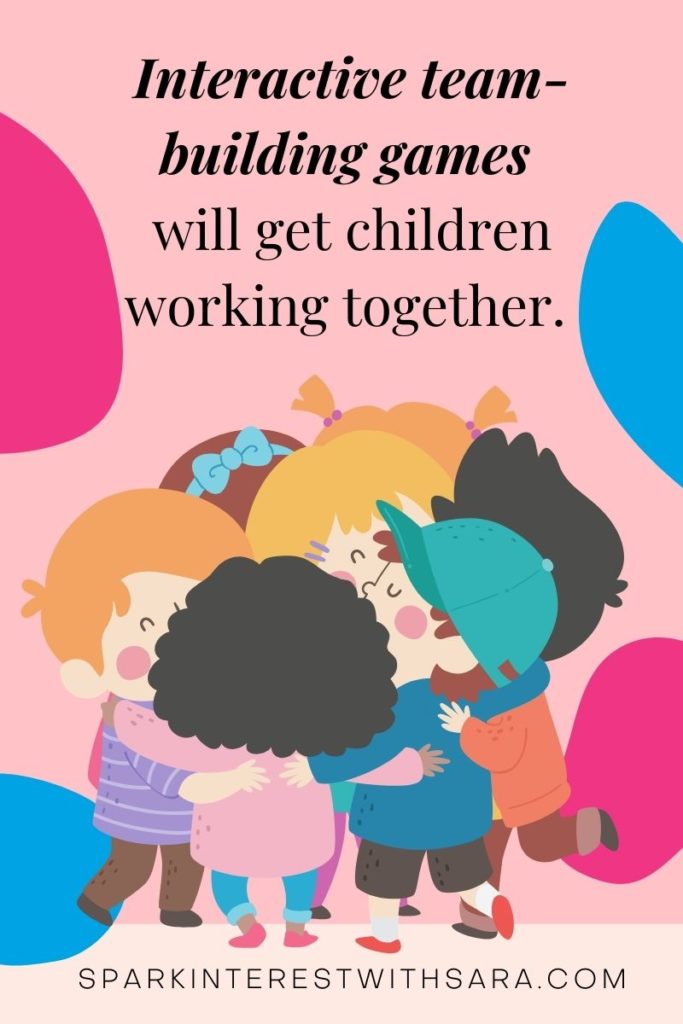
Interactive team-building games and activities will get the children working together. Whether it is a group puzzle challenge or a group scavenger hunt.
The aim is to encourage children to work together as a team. We want to work on problem-solving skills, conflict resolution, and to practice clear communication.
Popular Team Building Games Include:
Relay Races – Any sort of relay race works here. Such as egg and spoon, sack race, or animal walks.
Three-Legged Race – Classic race where you connect two children by the ankles and get them to walk together in a race! Often results in fits of laughter!
Human Knot- Have 5 or 6 children (gently) hold each other’s wrists. Without letting go, challenge them to untangle themselves.
Trust Walk-In pairs, blindfold one child and have another child (safely) guide them around a simple obstacle course.
Playing games will encourage children to develop their friendship skills. It is a fun way to incorporate practicing these skills into your daily routine.
3. Make connection part of your classroom culture
Connection should be at the heart of all we do. Connection is the key to EVERYTHING! Don’t even get me started as I am SUPER passionate about this topic and am bursting to write a blog post about this soon 🙂
Connecting will help in developing respectful friendships and relationships.
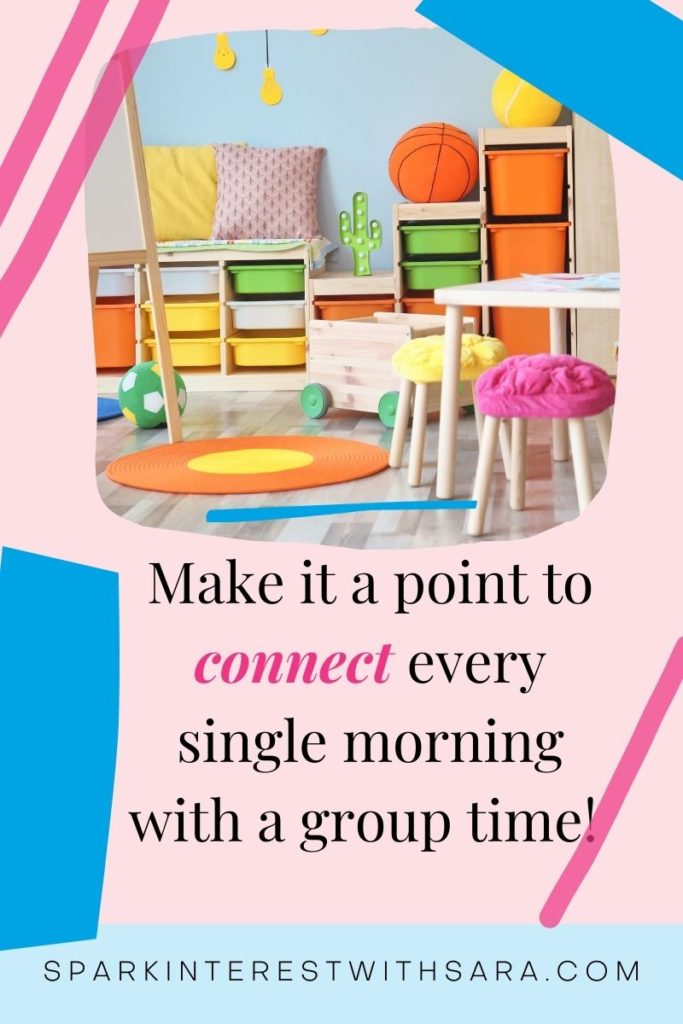
So what can we do daily to connect with our children and for the children to connect with each other?
Morning Meetings – Make it a point to connect every morning with a group time. Make sure you greet each other and share what is to come in the day. Use this time to share your observations about the group when it comes to friendships.
What I found works well is to have a friendship focus area for the week.
What friendship skills are we working on this week?
Who has been working hard on that?
What problems or situations have come up?
Discuss how we may resolve those issues and be a better friend.
Set the tone for the day. What are the expectations when it comes to friendships and developing respectful relationships?
Connect to the other grown-ups in the environment. Show what it means to be a friend. Practice what you preach! Your children in the classroom need to see you modeling what it means to be a good friend!
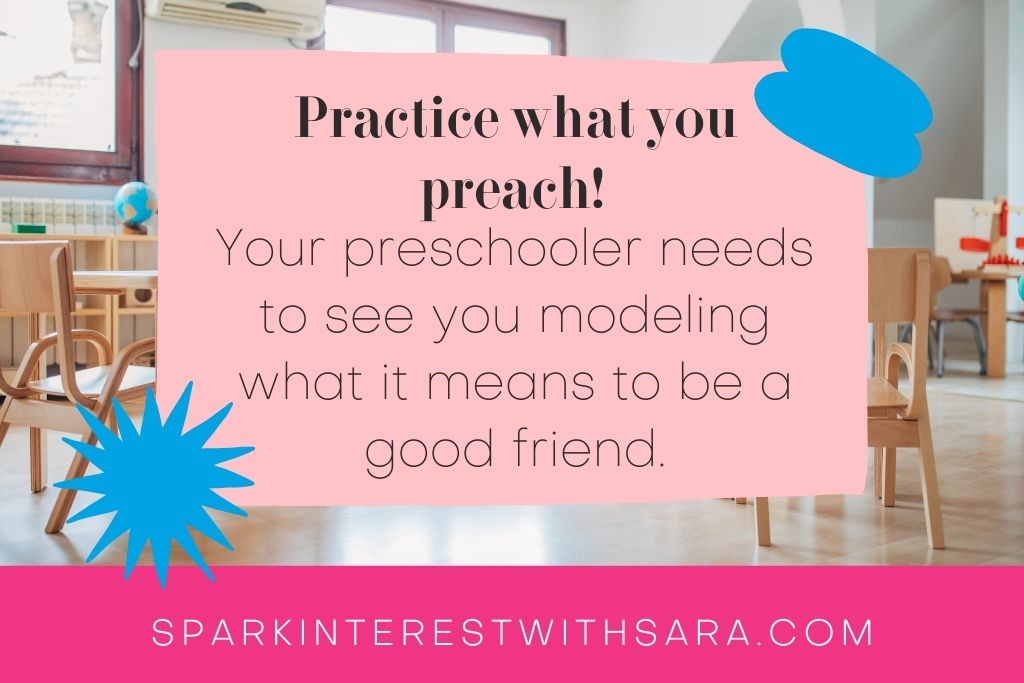
How do you behave towards the other teachers?
How do you interact with families?
How do you show you care?
4. Read books about friendships
There are a million picture books out there about friendship! Use them to stimulate discussions. They are so easy to incorporate into your day. Even if you don’t have the physical book, YOUTUBE often has a read-aloud version available!
Reading books about friendships is a great way to examine friendships and will open up discussions.
Discussing the story will help us:
- Identify the friendship issue
- Look at things from different perspectives
- Identify solutions used in the story
- Link the experiences in the stories with their own experiences
- Invite the children to imagine ‘What Ifs’
5. Talk about issues that may arise
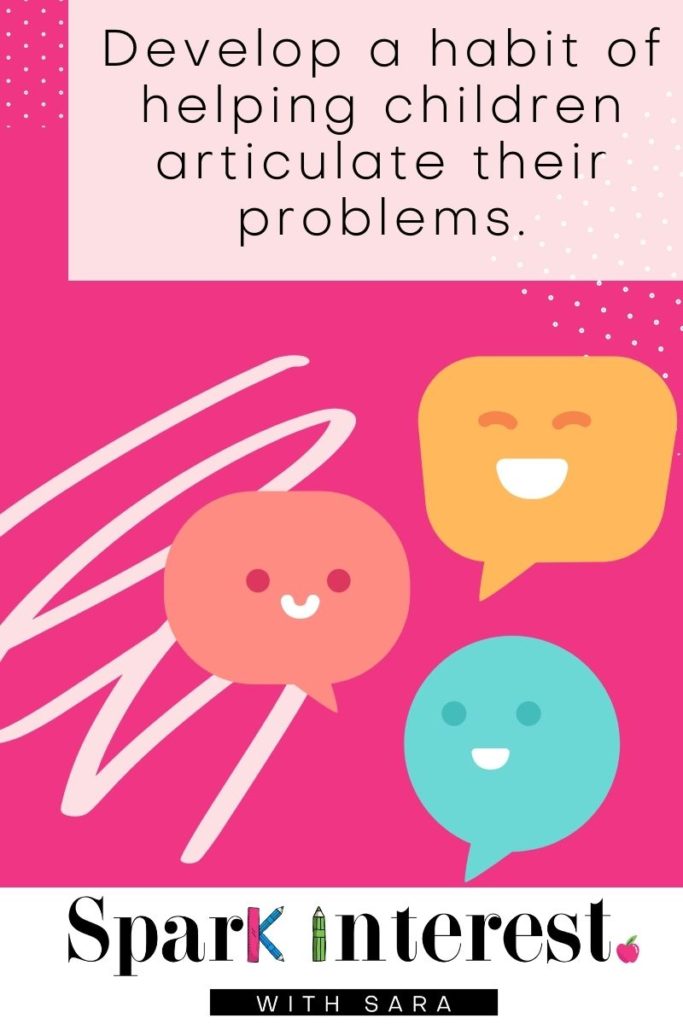
Talk, talk, and more talk. When issues arise (and you know they do, on a daily basis), open up a dialogue with the children involved. Develop a habit of helping children articulate the problem. Encourage them to explain how they are feeling. Brainstorm strategies to solve the issue and what to do if issues can’t be resolved.
It could be a 2-minute chat with a pair of children disagreeing over a piece of equipment. Or it could be a deeper issue about name-calling which would benefit from a group discussion.
Do not underestimate the power of discussions.
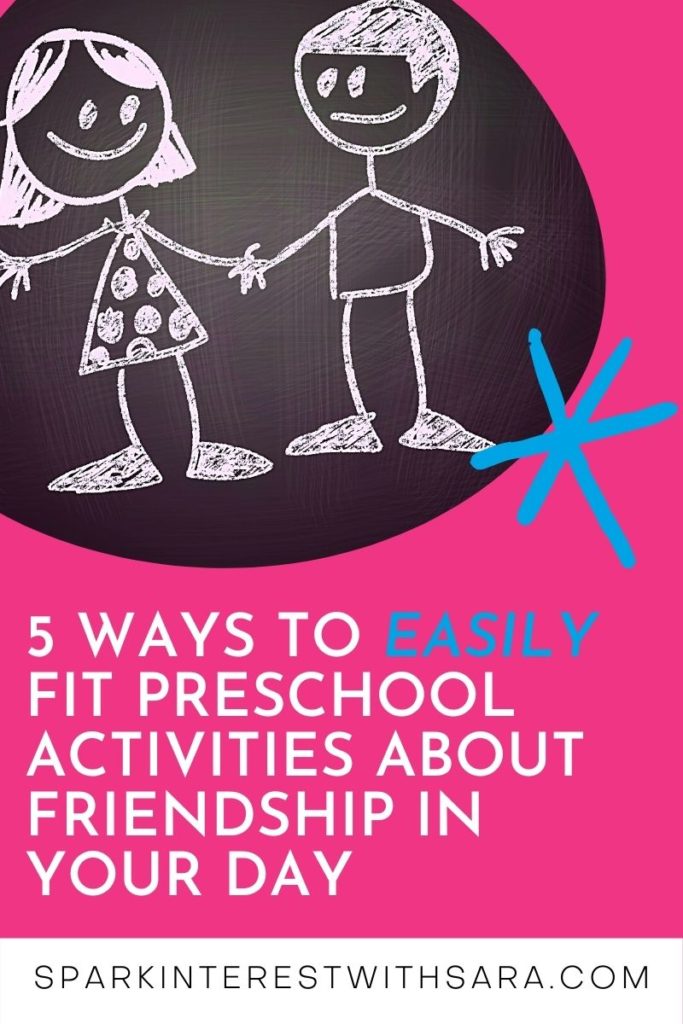
We want to model and practice these friendship skills with our children on a daily basis. The more you do it, the more it becomes a part of your classroom culture. I can’t wait to hear how you have been able to incorporate some of these preschool activities about friendship into your day!
Subscribe and connect. I would love to hear from you.
More Awesome Early Childhood Focused Blog Posts to Check Out:
- 7 Fun and Engaging Activities about Friendship for Preschool Classrooms
- 13 Successful First Day in Day Care Tips for an Easy Transition
- 5 Preschool First Day Activities to Set Your Year Up for Success
- What Are Syllable Types and How to Help Your Struggling Reader
- 3 Main Areas to Focus on when Teaching Friendship Skills to Preschoolers
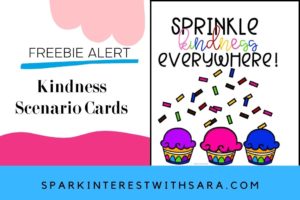
Don’t forget to grab my FREE Kindness Scenario Cards here to add to your social-emotional learning program! ????????
If you want to learn to Blog Like a Boss, just like I have with the fabulous Kayse Morris, check out: 7 Helpful Tips on How to Blog Like a Boss
5 Comments
Leave a Comment
Let's Connect:

Sara
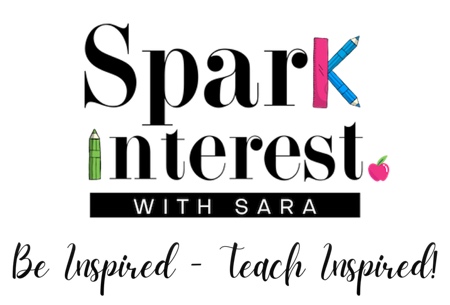
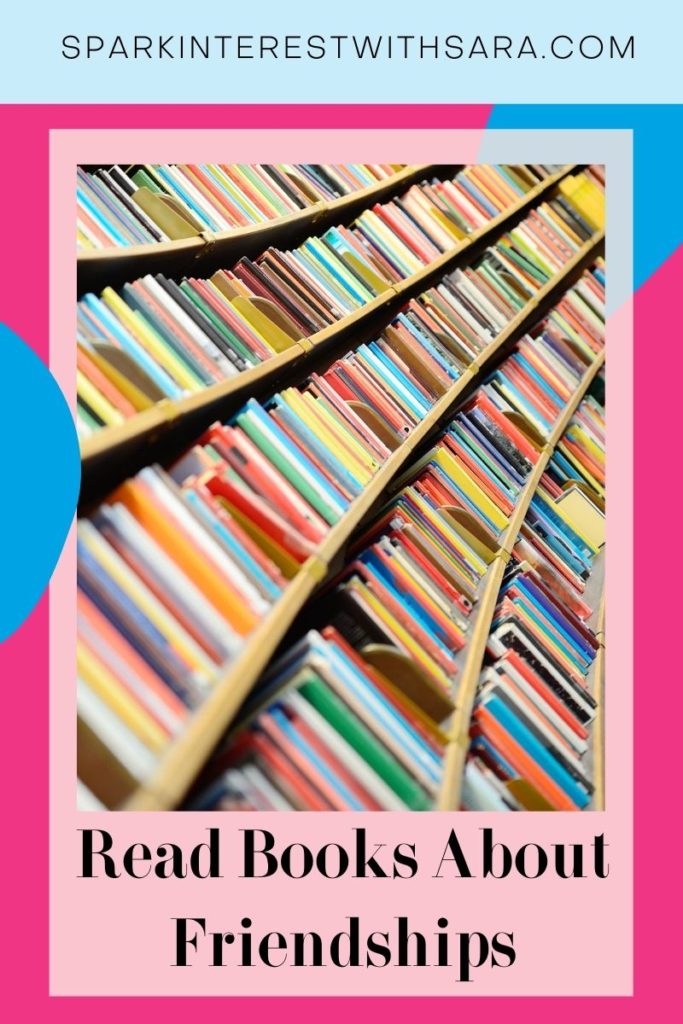
[…] 5 Ways to Easily Fit Activities About Friendship into your Day […]
[…] 5 Ways to Easily Fit Activities About Friendship into Your Day […]
[…] 5 Ways to Easily Fit Friendship Activities into Your Day […]
[…] 5 Ways to Easily Fit Friendship Activities into Your Day […]
[…] 5 Ways to Easily Fit Activities About Friendship into Your Day […]